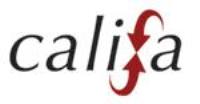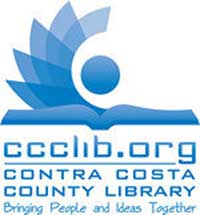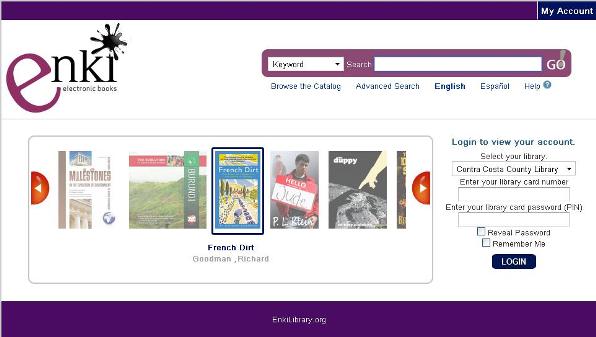 The Califa Library Group and Contra Costa County Library (CCCL) today officially announced the beta launch of Enki Library, a new ebook platform designed to host and lend library-managed ebooks using the Douglas County model. Named after the Sumerian god of mischief, creativity, and intelligence, Enki went live at CCCL and the San Francisco Public Library (SFPL) on May 6, and will soon serve multiple libraries in California, beginning with members of the Bay Area Library and Information System (BALIS) consortium.
The Califa Library Group and Contra Costa County Library (CCCL) today officially announced the beta launch of Enki Library, a new ebook platform designed to host and lend library-managed ebooks using the Douglas County model. Named after the Sumerian god of mischief, creativity, and intelligence, Enki went live at CCCL and the San Francisco Public Library (SFPL) on May 6, and will soon serve multiple libraries in California, beginning with members of the Bay Area Library and Information System (BALIS) consortium.
Califa and CCCL worked closely with Douglas County Libraries (DCL) and Colorado’s Marmot Library Network to create Enki, according to Califa Project Manager Heather Teysko. DCL pioneered the use of in-house Adobe Content Servers to manage ebooks purchased directly from authors, small publishers, and indie distributors such as Smashwords, and they were eager to help launch similar projects elsewhere. But it wasn’t as simple as handing over their code.
DCL’s system “was written just to serve one ILS, and with us being a consortium of 220 libraries, we needed it to authenticate against multiple ILSs,” Teysko said. “That was a real stickler for several months.”
There were other significant issues. For example, many publishers provide ebook metadata and order information in spreadsheets or other formats. New code had to be written to simplify metadata ingestion so that it does not have to be done manually.
 The result of their work is a fully-functional platform that will soon enable hundreds of library systems to manage directly—rather than license via an aggregator—a portion of their ebook collections (the issue of intellectual property ownership, which would cover ebooks, remains a topic of much debate, but one that does not seem to legally favor libraries despite some use of the word own rather than license). The State Library of Kansas, which provided early financial support to the project, plans to adopt Enki soon as well, and other consortia and state systems have expressed interest. [EDIT: Teysko indicated that the project will likely go open source after an assessment period following the rollout to Califa’s members.]
The result of their work is a fully-functional platform that will soon enable hundreds of library systems to manage directly—rather than license via an aggregator—a portion of their ebook collections (the issue of intellectual property ownership, which would cover ebooks, remains a topic of much debate, but one that does not seem to legally favor libraries despite some use of the word own rather than license). The State Library of Kansas, which provided early financial support to the project, plans to adopt Enki soon as well, and other consortia and state systems have expressed interest. [EDIT: Teysko indicated that the project will likely go open source after an assessment period following the rollout to Califa’s members.]
“I don’t think everybody needs to reinvent the wheel,” Teysko said. “Each library doesn’t have the resources to do something like this on their own. That’s why we saw the need for us to be able to step in and say ‘we’re a consortium, we can do this, and maybe others can join in.’”
 In terms of reinventing the wheel, CCCL had been working quietly on its own approach to developing an ebook platform for which libraries manage file distribution and digital rights management (DRM) directly, and was in the process of applying for grant funding just prior to Califa’s announcement of the project last year. The two organizations soon partnered. CCCL provided significant software development support with assistance of The Quipu Group, and Califa focused on facilitating the project and negotiating with publishers, which will initially include Workman, Dzanc, Smashwords, Akashic, Crossroads Press, National Highlights, Infobase, and others.
In terms of reinventing the wheel, CCCL had been working quietly on its own approach to developing an ebook platform for which libraries manage file distribution and digital rights management (DRM) directly, and was in the process of applying for grant funding just prior to Califa’s announcement of the project last year. The two organizations soon partnered. CCCL provided significant software development support with assistance of The Quipu Group, and Califa focused on facilitating the project and negotiating with publishers, which will initially include Workman, Dzanc, Smashwords, Akashic, Crossroads Press, National Highlights, Infobase, and others.
“It just turned out to be a perfect match,” said CCCL Deputy County Librarian Cathy Sanford.
Sanford added that Enki offers patrons an experience very similar to what they might expect from vendor platforms.
“It’s a pretty good user interface for keyword searching,” Sanford said. “The login, the checkout, all of the things that people are accustomed to seeing on OverDrive or any of the other platforms, they’re pretty much the same.”
With more advanced searches, Enki suffers by comparison to the latest commercial platforms, she added, “but I don’t think the user is experiencing [Enki] much differently than the other platforms…. The feedback we’re getting from our staff and from other people, including other IT professionals who understand what Enki is and what it’s supposed to be doing—and who understand that we’re still working on it—they’ve all said that they think it looks very good and it works very well. And we’re not getting any complaints from the public. That’s always a good sign.”
The open-source nature of the platform will also enable Califa, Marmot, and other libraries and developers to potentially add features and functionality to Enki and then share them with the library community.
The library ebook landscape has changed significantly since the project was first announced in March 2012. At that point, Random House and HarperCollins were the only two big six publishers committed to licensing ebooks to libraries.
The past several months have brought a series of welcome announcements, and now all of the largest U.S. publishers have begun either fully licensing ebooks to libraries once again, or have become involved in ebook pilot programs with libraries.
Yet in every case, titles from those publishers are only available via agreements made through third-party distributors. Developing a platform on which ebooks are managed directly rather than licensed remains vital to the future of libraries, Teysko said.
“I don’t think the library mission is about making OverDrive profits. To me, the idea that you would take such a major part of your business, and turn it over to another company that has very different motivations than you do,” is far from ideal, she said. “This isn’t about us trying to replace the vendors. But it is about us having some ownership over what we’re putting out there to the public.”
At CCCL, Sanford agreed.
“I believe that it is so important of our content, and control the destiny of what happens with our reading material. Just because [publishers and vendors] decide today that they are coming around doesn’t mean that they won’t change that model six months or five years from now. It’s not set in stone. And I have this real fear that we could turn into a country where only rich people are able to read…. And, I believe that libraries are tired of other people telling us what to do and shaping our industry for us. We have got to step up to the plate and take ownership.”




Thanks for a great article, Matt. I wanted to mention and credit the significant work of The Quipu Group (http://quipugroup.com/), our software developers and consultants on the enki platform. They share in the success.
Best-
Cathy
Hi, Cathy
I apologize for not including that. It has been added to the story, along with the link. Thanks again for your time last week!
-Matt
You’re the best! Thanks.
How open source is this, really, if there’s no project mentioned? There’s no public project website listed, only a vendor (Quipu) and the product (Enki) and the library systems taking part. Any idea when code might actually be opened up?
Hi, Robby,
Thanks for pointing that out. I should have clarified that.
Heather indicated that they plan to make it open source, although they want to complete beta testing and roll it out to Califa-member libraries first. There’s no specific timeline yet.
From my notes, Teysko said:
We need to get it right for ourselves first. It’s still in beta. We need to get our libraries set up, and we need to spend some time analyzing statistics and putting together a model that will work for everybody, because we are going to have to charge for maintenance to cover the cost of hosting [plus Adobe Content Server fees] …. we need to have something we can offer our members to start with. After that, if other people want to play with it, that’s great.”
Hi Robby – I do know that Quipu has provided some code back to the open source community already, but I’m not sure what all was included in that. I can check with Contra Costa and them, and see if I can get you an answer on it – this is all still so new… I can tell you the intention is to share as much of the original coding as we can – we’re very much in support of open source initiatives.
Thanks!
Here’s a more complete answer from Contra Costa County…thanks for the question!
—-
the open source component is VuFindPlus; it’s open source and we’re using it. enkitools is what Quipu is building separately to make our service work the way we want it to. So it’s an amalgam of commercial (adobe content server), open source, and new code for processing metadata and packaging content files.
Thanks for getting back to me on this, everyone. VuFind provides the portal, VuFindPlus acts as the “glue” between portal systems, Quipu’s access-integration technology, and Adobe Content Server, and the libraries’/consortiums’ own management software gets hooked into VuFind/VuFindPlus, presumably?
I’m really most interested in the web-based epub-reader, to be honest. We run Content Server for our member presses to be able to sell retail electronic copies of their books, but I know the market is clamoring for a web-based readers and it would be great to know that there’s a fairly simple epub-to-web tool out there… right?